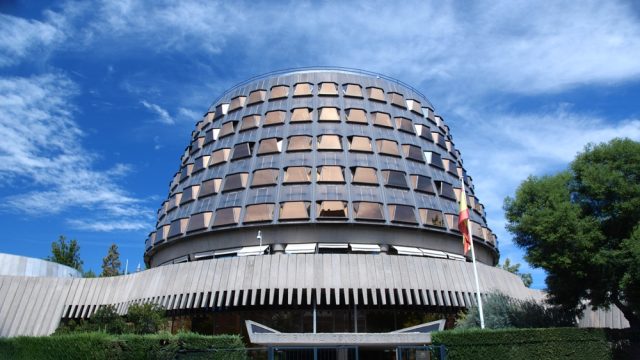
The coalition government of PSOE and Unidas Podemos tried, by means of some amendments, to change the Organic Law. The importance of this type of law means that the procedure for making modifications is by means of an absolute majority in Congress, which makes it evident that the procedure that the government has tried to follow is totally outside the law. Even perpetrating the illegality, the Congress approved the reform without the pertinent consultation, motivating the complaints and reproaches of the opposition.
Faced with this situation, the opposition filed what is known as a writ of amparo: an instrument used in this case to denounce that the right of the representatives of popular sovereignty, the legislature, to exercise their functions on the relevance of reforming the organic law, was being violated. In the same move, the socialist executive has attempted to assault the separation of powers by ignoring the legislative branch and controlling the judiciary.
The Constitutional Court has given reason to the opposition, since the government parties and the pro-independence partners had approved a reform of the crime of sedition accompanied by an amendment that intended to perpetrate an assault of the executive on the judiciary. In this sense, the court assessed that, by allowing the processing of this vote in the Senate, irreparable damage could be caused to the Spanish democratic architecture illegally achieved by those who want to assault power at any price.
In the face of this resistance that pretends to defend the separation of powers, government personalities have allowed themselves to qualify this as an assault on democracy and popular sovereignty. “It is of the utmost gravity. The most serious decision of the Constitutional Court: it has stopped the legislative action of the legitimate representatives of the Spanish people” said the Minister of the Presidency, Mr. Felix Bolaños. “We are witnessing an unprecedented situation in the history of our democracy” said President Sanchez. The perplexity of those who have pretended to assault the separation of powers turns against those who pretend to block democracy, or so they pretend to show. Socialism has succumbed to opportunism and has entrusted itself to the most opportunistic post-truth.
What is democracy after all? Puigdemont 2017, Sánchez 2022
The fundamental problem in Spain in the last five years has been the vague interpretation of democracy. Left-wing populisms have entrusted themselves to political marketing as a state doctrine and raison d’être, without principles or values. They have deteriorated the term democracy and have championed themselves as the defenders of an undefined project. Democracy is voting, the end. It is to decide on anything regardless of the consequences, nothing more. The state is legitimized to violate any individual guarantee over its citizens and laws are mere words without any force. Today’s institutions and their purposes have no guarantee of survival. Our system falls by a decision of the ruler of the day.
On October 1, 2017, an illegal referendum of self-determination was held in Catalonia. The autonomous president Carles Puigdemont, as well as different personalities of the Catalan independence movement, referred to the event as an exercise of democracy. The only principle they relied on was the exercise of a vote in which a supposed majority could decide the fate of an entire region. Justice by their own hand would ignore the Constitution and the laws of a democratic state, stripping the rule of law of its own right. Five years later, Pedro Sanchez entrusts himself to the same loopholes that undermined the unity of Spain. The destruction of the democratic state passes through contempt for the institutions themselves. Sánchez’s project shows once again to be subordinated to perpetuity in power and now more than ever there is an urgency to reach the end of the term of office before the grievances to democracy in Spain are perpetuated.



 Subscribe
Subscribe